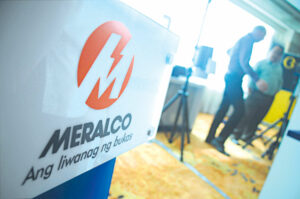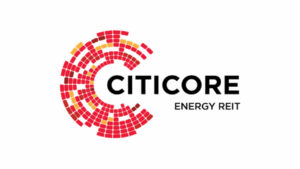Providing the essentials of the Filipino life

Whether one knows it or not, the MVP Group of Companies is embedded deep into the Manila life. Particularly in Manila, from the water people use to the energy they consume every day, the company has been ceaselessly providing essential services and much needed amenities to the Filipino public.
The Manila Electric Company, also known as Meralco, serves more than 7.5 million people across its over 9,685 square kilometers of franchise area — merely 3% of the total land area of the Philippines, but accounts for 55% of the country’s electricity output. This makes the company the largest private sector electric distribution utility company in the Philippines covering 36 cities and 75 municipalities. Meralco celebrates 119 years of service in 2022, committed to providing reliable and affordable energy.
Meanwhile, Maynilad Water Services, Inc. (Maynilad) is the water and wastewater services provider for the 17 cities and municipalities that comprise the West Zone of the Greater Metro Manila area. It is the private concessionaire of the Metropolitan Waterworks and Sewerage System (MWSS) for the West Zone service area. The company is managed by Maynilad Water Holdings Company, Inc. — a joint venture between Metro Pacific Investments Corp. (MPIC), DMCI Holdings, Inc. (DMCI) and Marubeni Corp.
While PXP Energy Corp. is not as popularly known as Meralco and Maynilad, it is no less important. An upstream oil and gas company incorporated in December 2007 as a wholly-owned subsidiary of Philex Mining Corp., PXP Energy is mainly involved in the exploration and maturation of local and international hydrocarbon resources. It has interests in various petroleum Service Contracts (SCs) in the Philippines and a petroleum block in Peru held directly and through its major subsidiaries, Forum Energy Limited and Pitkin Petroleum Limited.
With such a large reach and influence on Filipino life, it is only meet that such companies realize the weight of responsibility that they shoulder. PXP Energy, for instance, has acknowledged the changing demands of the public towards oil and gas companies.
In its latest annual sustainability report, the company said, “As part of the oil and gas industry, PXP recognizes the challenges and opportunities facing its business and the importance of operating responsibly. The Company is committed to the health and safety of its employees, contractors, and the local community, as well as the preservation of the environment where it has petroleum operations.”
“Social, environmental, and economic sustainability are core principles of PXP’s business culture and growth strategy. To ensure these principles are embedded in the business, PXP developed a management framework and governance system that both promotes sustainability and provides clear guidelines for decision-making throughout the company.”
Part of this growth strategy includes improving operations to strengthen the company’s focus on employee safety, providing them with sufficient healthcare, and giving back to the communities they operate in without endangering the environment.
Maynilad, for its part, acknowledged the immense impact water facilities had on public health and sanitation, and donated clean water to many communities throughout the COVID-19 pandemic.
Maynilad strengthened its hand washing campaign by donating hand wash stations and soaps to several local government units (LGUs) and public schools. The water company also set up a number of hand-wash stations, complete with 1,170 one-liter liquid hand soaps.
Amid the pandemic, Maynilad supported urban poor communities as well through sustaining its livelihood programs such as its pro-poor water service delivery program, Samahang Tubig. Hydration support was also provided to frontliners in the Philippine Navy, Philippine National Police, Metro Manila Development Authority, National Capital Region Police Office, Research Institute for Tropical Medicine, Philippine General Hospital, several local government units, and several other medical centers and clinics.
Meralco also actively participated in helping the country fight against COVID-19 through partnerships with the government and other private institutions. These include energizing more than 90 essential facilities, which include the 525-bed Solaire-PAGCOR Mega Quarantine Center at Bagong Nayong Pilipino in Paranaque City; the 300-bed Mega Quarantine Center at the Philippine Arena Complex in Bocaue, Bulacan; and the 112-bed temporary COVID-19 Health Facility at Ninoy Aquino Stadium in Manila.
Meralco also installed additional facilities to energize mortuary freezers of East Avenue Medical Center, Loyola Memorial Chapels & Crematorium and Arlington Memorial Chapels, both in Quezon City. The firm also energized the government’s partner in manufacturing ventilators for COVID-19 patients, Kinpo Electronics Philippines Inc., in Sto. Tomas, Batangas.
More recently, through One Meralco Foundation (OMF), the company’s corporate social responsibility arm, it implemented its core electrification programs energizing the homes of 7,509 low-income families in the Meralco franchise area and providing solar power access to 16 off-grid public schools and two community livelihood programs.
“There is no direct translation for the word ‘malasakit’. To define it, only actual examples suffice. The ubiquity of community pantries during the pandemic is one good example of what Filipinos mean by ‘malasakit’. It is this same value of malasakit that drives One Meralco Foundation to ‘spread the light’, especially to marginalized communities in the Meralco franchise area and beyond,” Chairman Manuel V. Pangilinan, Vice-Chairman Ray C. Espinosa, and President Jeffrey O. Tarayao said in OMF’s latest annual report.
“With malasakit as our driving force, the unwavering commitment of our trustees, management and staff, and the support of our donors and partners, we remain committed to assisting vulnerable sectors of society, and to innovating constantly so that our interventions remain relevant and helpful to the communities that we serve.” — Bjorn Biel M. Beltran




